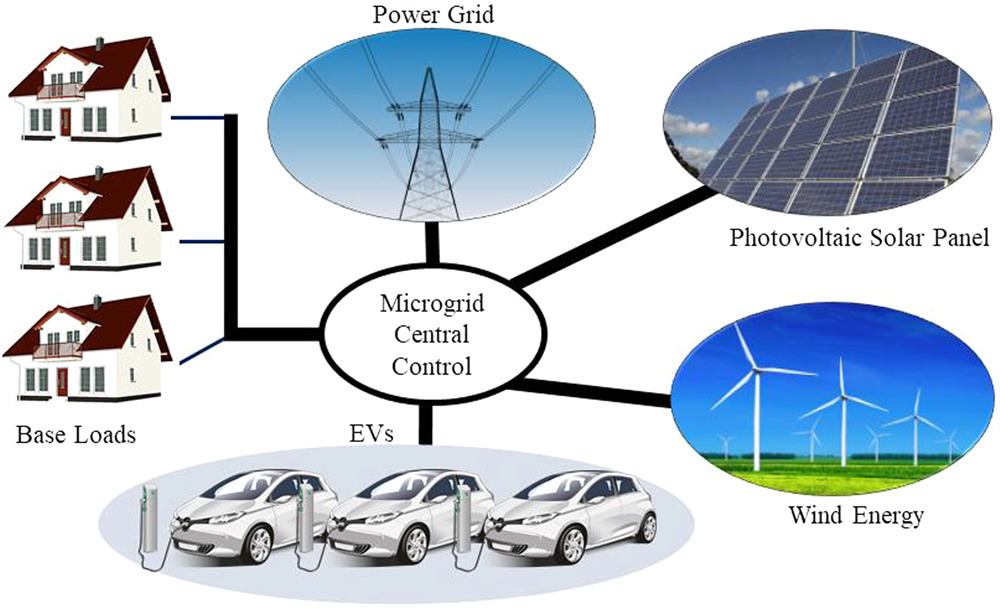Power system designers and operators are increasingly focused on boosting the integration of large numbers of EVs and intermittent renewable energy resources (RERs), as part of a move toward modern microgrids. However, such microgrids will likely encounter serious challenges in terms of increased power losses, thermal loading, voltage deviation, and overall system costs.
Now, an international group of researchers from Egypt, the United Arab Emirates, and Finland has proposed an efficient planning approach, the “jellyfish search optimizer” (JSO) method, to solve the allocation problem of EV charging stations and RERs in multi-microgrids.
The researchers investigated different scenarios, including the optimal integration of EV charging stations without RERs, optimal integration of EV charging stations and RERs with a controlled charging strategy, and optimal integration of EV charging stations and RERs with a controlled charging and discharging strategy.
They obtained superior results with the optimal integration of EV charging stations and RERs with a controlled charging and discharging strategy. Voltage deviation, energy not supplied, and total cost decreased considerably compared to the base case – specifically by 73.97%, 50.43%, and 29.55%.
The researchers also found that the proposed optimizer can reduce operating costs for RERs and conventional stations while increasing the capacity of charging stations. The researchers said this makes the JSO approach superior for solving the allocation problem of EV charging stations and RERs compared to the other well-known algorithms.
They presented their findings in “Multi-objective optimal planning of EV charging stations and renewable energy resources for smart microgrids,” which was recently published in Energy Science and Engineering.
This content is protected by copyright and may not be reused. If you want to cooperate with us and would like to reuse some of our content, please contact: editors@pv-magazine.com.




2 comments
By submitting this form you agree to pv magazine using your data for the purposes of publishing your comment.
Your personal data will only be disclosed or otherwise transmitted to third parties for the purposes of spam filtering or if this is necessary for technical maintenance of the website. Any other transfer to third parties will not take place unless this is justified on the basis of applicable data protection regulations or if pv magazine is legally obliged to do so.
You may revoke this consent at any time with effect for the future, in which case your personal data will be deleted immediately. Otherwise, your data will be deleted if pv magazine has processed your request or the purpose of data storage is fulfilled.
Further information on data privacy can be found in our Data Protection Policy.